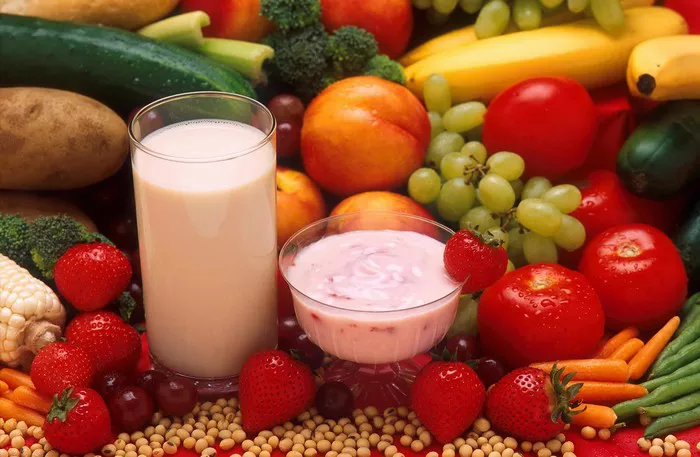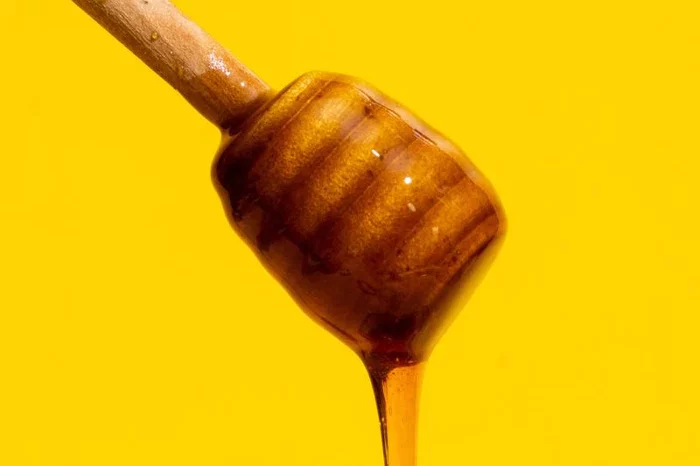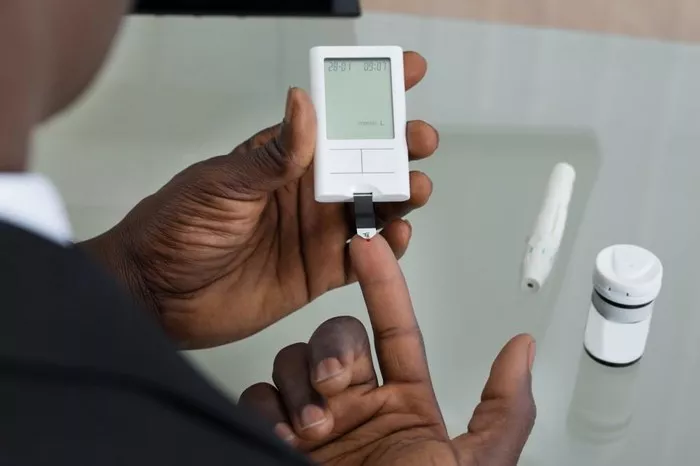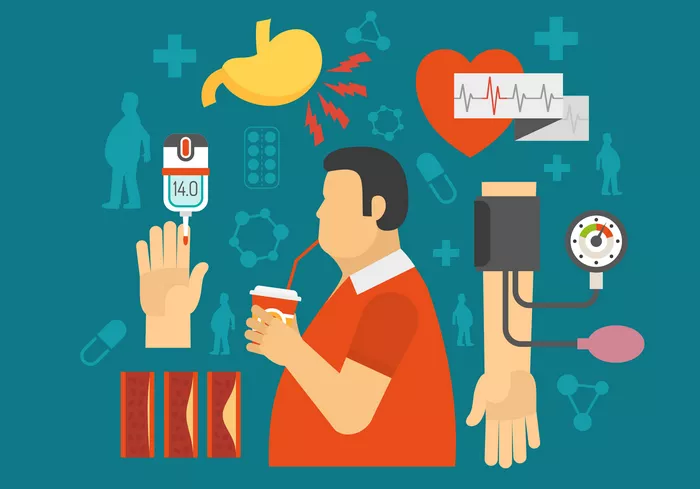In the modern era of health-conscious living, where dietary choices are scrutinized for their impact on well-being, the question of whether eating too much fruit can lead to diabetes is one that often arises.
Fruits, with their natural sweetness and plethora of nutrients, have long been celebrated as essential components of a healthy diet. However, concerns about their sugar content have sparked debates about their potential role in the development of diabetes, particularly type 2 diabetes, which is closely linked to lifestyle and dietary factors.
Understanding Diabetes and Its Causes
Before delving into the relationship between fruit consumption and diabetes risk, it’s crucial to comprehend the nature of diabetes itself. Diabetes is a chronic metabolic disorder characterized by elevated blood sugar levels, known as hyperglycemia. The two primary types of diabetes are type 1 and type 2, each with distinct underlying mechanisms.
Type 1 Diabetes:
In type 1 diabetes, the immune system mistakenly attacks and destroys the insulin-producing beta cells in the pancreas. As a result, the body is unable to produce insulin, the hormone responsible for regulating blood sugar levels. Type 1 diabetes is typically diagnosed in childhood or adolescence and requires lifelong insulin therapy to manage blood sugar levels.
Type 2 Diabetes:
Type 2 diabetes, on the other hand, is characterized by insulin resistance, where the body’s cells become less responsive to the effects of insulin. Initially, the pancreas compensates by producing more insulin to overcome this resistance. However, over time, the pancreas may fail to keep up with the increased demand for insulin production, leading to elevated blood sugar levels. Type 2 diabetes is often associated with obesity, sedentary lifestyle, poor dietary choices, and genetic predisposition.
The Nutritional Profile of Fruits
Fruits are renowned for their nutritional richness, offering a diverse array of vitamins, minerals, fiber, and antioxidants. They are naturally low in fat and sodium and free from cholesterol, making them an ideal choice for those looking to maintain a healthy diet.
Additionally, the vibrant colors of fruits often indicate the presence of phytochemicals, bioactive compounds that contribute to their health-promoting properties.
One of the primary components of fruits is carbohydrates, which include naturally occurring sugars such as fructose, glucose, and sucrose. While these sugars contribute to the sweet taste of fruits, they are accompanied by fiber, which slows down the absorption of sugars into the bloodstream. This fiber content, combined with the water content of fruits, helps promote feelings of fullness and satiety, making fruits a satisfying and nutritious choice for snacking and meals.
Can Eating Too Much Fruit Cause Diabetes?
The question of whether eating too much fruit can cause diabetes is a complex one, as it involves various factors, including overall dietary patterns, lifestyle factors, individual metabolism, and genetic predisposition. While excessive consumption of any food, including fruits, can contribute to weight gain and metabolic disturbances, the evidence linking fruit consumption to diabetes risk is nuanced.
Studies examining the association between fruit consumption and diabetes risk have yielded mixed results. Some observational studies have suggested a potential protective effect of fruit consumption against type 2 diabetes, attributed to the presence of antioxidants, fiber, and other bioactive compounds in fruits. These studies have found that individuals who consume higher amounts of fruits may have a lower risk of developing type 2 diabetes compared to those with lower fruit intake.
However, other studies have raised concerns about the potential adverse effects of high fruit consumption on diabetes risk, particularly in individuals who are already overweight or have impaired glucose tolerance. These studies have suggested that excessive fruit consumption, especially in the form of fruit juices or dried fruits, may contribute to weight gain and increased calorie intake, which can exacerbate insulin resistance and elevate blood sugar levels over time.
Understanding Glycemic Index and Load
A crucial aspect to consider when evaluating the impact of fruits on blood sugar levels is their glycemic index (GI) and glycemic load (GL). The glycemic index is a measure of how quickly a carbohydrate-containing food raises blood sugar levels compared to a reference food, usually glucose or white bread. Foods with a high GI are rapidly digested and absorbed, leading to sharp spikes in blood sugar levels, while foods with a low GI produce more gradual and sustained increases in blood sugar levels.
The glycemic load takes into account both the GI of a food and the amount of carbohydrates it contains per serving. It provides a more accurate reflection of a food’s overall impact on blood sugar levels, as it considers both the quality and quantity of carbohydrates consumed. Foods with a low glycemic load are less likely to cause sharp fluctuations in blood sugar levels and are generally considered more favorable for individuals with diabetes or those seeking to manage their blood sugar levels.
Most fruits have a low to moderate glycemic index and glycemic load, thanks to their high fiber content, which slows down the absorption of sugars into the bloodstream. However, the glycemic index and load can vary depending on factors such as ripeness, processing, and fruit type.
Generally, fruits with higher fiber content, such as berries, apples, and pears, tend to have a lower glycemic index and load compared to fruits with lower fiber content, such as watermelon and pineapple.
The Importance of Portion Control and Moderation
While fruits are undeniably nutritious and beneficial for health, moderation is key, especially for individuals at risk of or managing diabetes. Portion control plays a crucial role in managing blood sugar levels and preventing excessive calorie intake. While whole fruits are generally preferred over fruit juices or dried fruits due to their higher fiber content and lower glycemic index, it’s essential to be mindful of portion sizes to avoid overconsumption of carbohydrates and sugars.
For individuals with diabetes or those aiming to manage their blood sugar levels, the American Diabetes Association recommends a balanced approach to fruit consumption. This includes incorporating a variety of fruits into the diet, focusing on whole fruits rather than fruit juices, and balancing fruit intake with other nutrient-rich foods such as lean proteins, whole grains, and healthy fats.
Conclusion
In conclusion, the question of whether eating too much fruit can cause diabetes is multifaceted and warrants careful consideration of various factors. While fruits are rich in essential nutrients and offer numerous health benefits, including a lower risk of chronic diseases such as type 2 diabetes, their natural sugar content raises concerns about their impact on blood sugar levels, particularly in individuals with diabetes or those at risk of the condition.
Overall, a balanced approach to fruit consumption is recommended, emphasizing portion control, moderation, and selection of fiber-rich fruits with a lower glycemic index and load.
By incorporating fruits into a balanced diet alongside other nutrient-rich foods and adopting a lifestyle that includes regular physical activity, individuals can enjoy the nutritional benefits of fruits while supporting their overall health and well-being.
As with any dietary choice, it’s essential to consult with a healthcare provider or registered dietitian for personalized guidance tailored to individual health goals and needs.



























